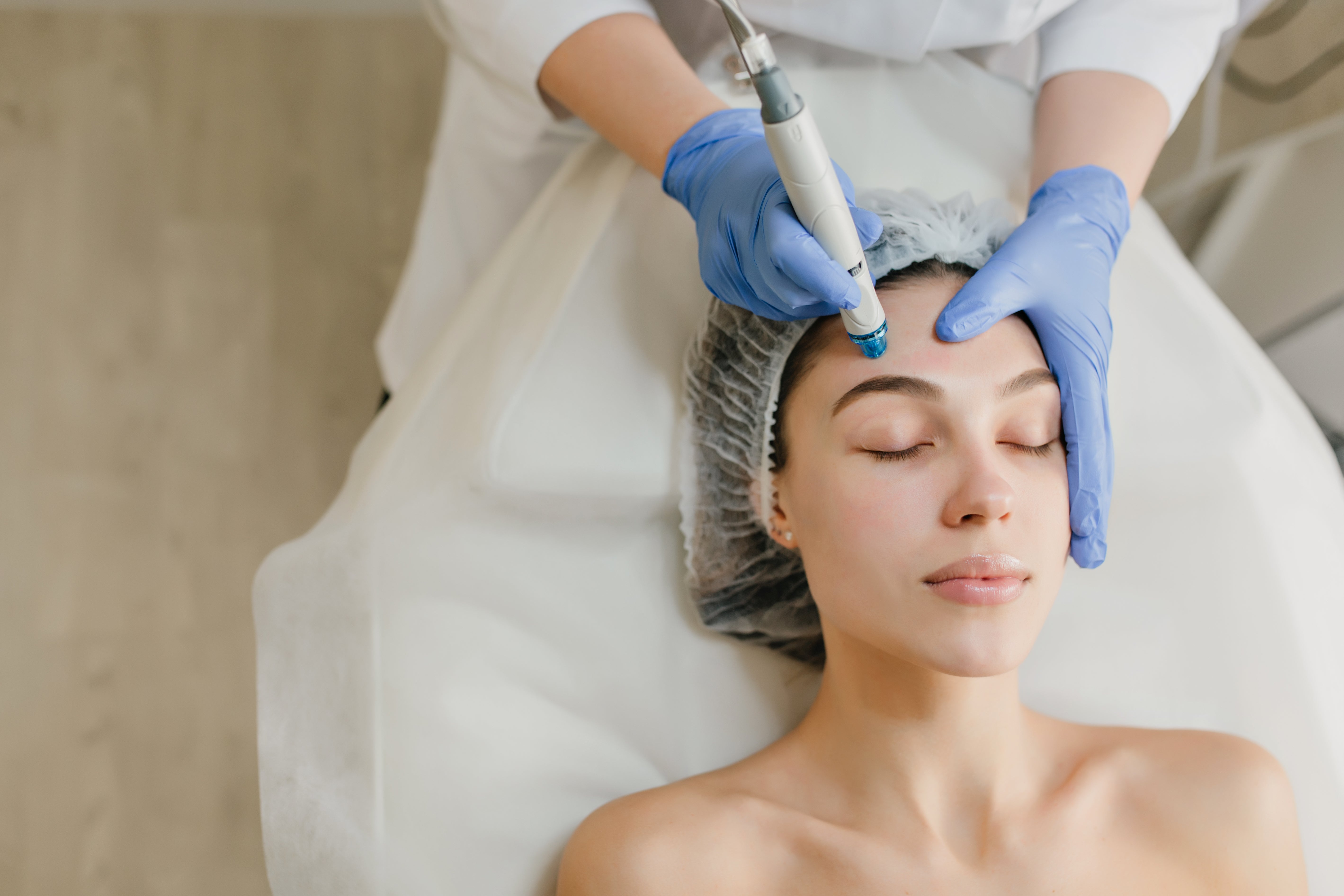
Maintaining That Maternity Glow: A Guide to Safe Care During Pregnancy and Breastfeeding
"As we prepare to become a mother, our skin, like every cell in the body, writes a new story."
– Pharmacist Berfin Işık
Volume 1, The Silent Witness to the Transformation that Comes with Motherhood
Pregnancy isn't just the start of a new life; it's also a period of profound transformation for the mother's body and skin. During this period, rising hormone levels, circulatory system changes, and immune modulation directly impact the skin. Many women experience skin problems that may be new or worsening during this period.
2. What Changes in the Body During Pregnancy? How Does the Skin React?
| Change | Effect on Skin |
|---|---|
| Increased Estrogen & Progesterone | Oiliness, acne, melasma (pregnancy spots) |
| Increase in Blood Volume | Facial redness, visible veins |
| Modulation of the Immune System | Eczema, dermatitis attacks |
| Skin Barrier Weakening | Dryness, tightness, sensitivity |
| Increased Pigment Production | Darkening around the eyes, cheeks, and lips |
Although these changes are temporary, they can be both relieved and prevented from causing permanent damage in the long term with the right care strategies.
3. Most Common Skin Problems & Safe Solutions
- Melasma and Skin Blemishes
During pregnancy, symmetrical dark spots can appear, particularly on the forehead, upper lip, and cheeks. This condition is melasma , triggered by hormonal influences. In melasma treatment, we utilize various active ingredients to both reduce the appearance of existing spots and prevent new ones. Prominent among these are Alpha Arbutin , azelaic acid , niacinamide , and vitamin C.
🔎 So, can we use Alpha Arbutin during pregnancy and breastfeeding?
Whether or not using arbutin is safe during pregnancy and breastfeeding is a frequently asked question.
Arbutin is an active ingredient that reduces melanin production by inhibiting the enzyme tyrosinase. Chemically, it is a glycoside derivative of hydroquinone.
It's true that some suggest that arbutin can be converted into hydroquinone during metabolism in the body. However, this effect has not yet been scientifically proven. Furthermore, for this conversion to occur, arbutin must be taken orally and then incorporated into the digestive system. When applied topically, due to its molecular structure, this level of absorption and metabolism are not possible.
As the L'Adore Tokyo expert team, we share the same opinion as many experts and see no harm in using arbutin during pregnancy and breastfeeding, in light of scientific evidence indicating that the conversion of arbutin to hydroquinone is not possible with topical application.
Additionally, hydroquinone is classified by the FDA as pregnancy category C. This classification indicates that animal studies have shown a low risk, but human studies are insufficient. However, given that arbutin is used only via topical and topical application , this metabolic pathway cannot be considered a valid reference for comparing the risk classification of hydroquinone.
✨ Products containing arbutin (e.g., L'Adore Tokyo Serum Alpha ) can reduce the appearance of existing spots by suppressing melanin production via the tyrosinase enzyme. When used in conjunction with regular sunscreen, they provide powerful protection against melasma formation. Their effectiveness is particularly enhanced when used in combination with antioxidants (e.g. , L'Adore Tokyo Serum Vitamin C ) in the morning routine. Alpha Arbutin, found in L'Adore Tokyo formulations, has been developed to be suitable for sensitive skin.
- Pregnancy Acne
- Safe ingredients: Niacinamide, Zinc PCA, Azelaic Acid (with doctor's recommendation)
- Things to avoid: Retinoids, high-dose BHA (salicylic acid)
- Dryness and Tension
For moisture support: Hyaluronic acid, Beta glucan, Panthenol, Allantoin
Supporting ingredients: Ceramides, Centella Asiatica, Squalane
• White Cloud Cream – Oat-based intensive moisturizer (Beta Glucan + Panthenol)
- Sensitivity and Redness
Soothing active ingredients: Madecassoside, Beta glucan, Azulene
Fragrance-free, sulfate-free, hypoallergenic products are recommended.
L'Adore Tokyo formulations offer an effective and ethical alternative for sensitive skin by combining active ingredients that can be safely used during pregnancy and breastfeeding with high-quality raw materials, fragrance-free and vegan formulas.
4. Actives to Avoid in Skin Care
| Contents | Why Should You Stay Away? |
|---|---|
| Retinoids | Teratogenic (risk of congenital anomalies) |
| Hydroquinone | High systemic absorption (~40%) |
| High dose Salicylic Acid (>2%) | Potential for systemic effects |
| Paraben / Phthalate / Formaldehyde | Hormonal system disruptor potential |
| Powerful essential oils | May trigger uterine contractions |
5. Sample Daily Care Routine (Pregnancy & Breastfeeding Compatible)
Morning:
- Sulfate-free gentle cleanser,
- L'Adore Tokyo Serum Beta – Serum with barrier support and soothing effect with Niacinamide + Hyaluronic Acid,
- L'Adore Tokyo Serum Alpha – Anti-blemish serum with arbutin (with physician approval)
- L'Adore Tokyo April Sun SPF 50 – Mineral-based, broad-spectrum sunscreen
Evening:
- Cleanser + rinse
- L'Adore Tokyo Serum Beta – Soothing serum with Panthenol + Beta Glucan + Centella
-
L'Adore Tokyo White Cloud Cream – Ceramide-based, barrier-strengthening moisturizer
Weekly:
- Genosys EpiTurnOver Peeling – Non-mechanical enzyme peeling
- Genosys Algae Sheet Mask – Moisture mask that provides intense moisture and soothing care at night
6. Frequently Asked Questions
- I accidentally applied a retinol product. What should I do? One-time use usually doesn't cause any problems. Rinse the product off and consult your doctor.
- Can I use vitamin C? Yes. The L-ascorbic acid form can be used in the 8-15% range.
- Is Arbutin safe? It is safe for topical use. However, a physician should be consulted.
- What should I do for acne? Safe ingredients like niacinamide, zinc, and azelaic acid should be preferred.
Don't Forget Your Own Shine..
Pregnancy is one of the most special times to care for yourself and show compassion. The connection you form with your skin supports both your physical comfort and your mental strength.
Every skin is unique. Consulting your skincare specialist or doctor to determine the most appropriate approach for your skin's needs during this special period will help you take the most informed and safe step for the health of both you and your baby.
Source
-
American College of Obstetricians and Gynecologists. (2023). Skincare in pregnancy: Clinical guidelines . ACOG Publications.
-
US Food and Drug Administration. (2022). Pregnancy and lactation labeling for prescription topical drugs . FDA Safety Guidelines.
-
Bissonnette, R., Zeng, H., & Maari, C. (2020). Arbutin and skin metabolism. Dermatologic Therapy , 33(6), e14000. https://doi.org/10.1111/dth.14000
-
Environmental Working Group. (n.d.). Skin Deep® cosmetics database. Retrieved August 6, 2025, from https://www.ewg.org/skindeep/





